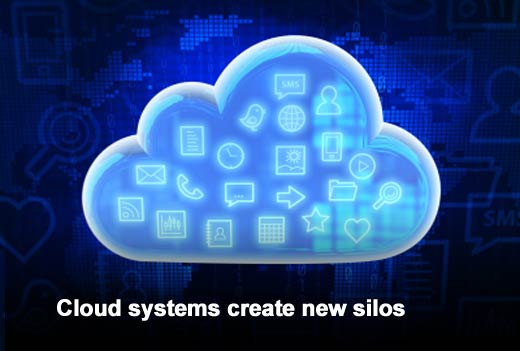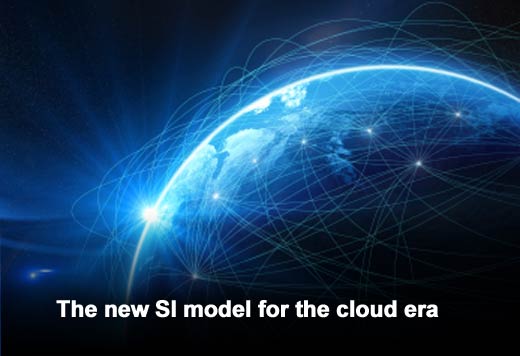The growth of the “integrated enterprise” depends on connecting disparate cloud systems to make them work for today’s dynamic business environment, and innovative systems integrators (SIs) will be the catalyst. The cloud is transforming the SI focus from implementation/customization to long-term business solutions that deliver the agile, future-proof technology roadmaps that today’s C-level executives demand.
Executives from top business consulting firm Armanino and data integration experts from Scribe Software share their take on the five disruptive forces changing the game for leading systems integrators and how they need to evolve to make the most of the new cloud realities.
Changing the Integration Game
Click through for five disruptive forces that are changing the game for system integrators, as identified by business consulting firm Armanino and data integration specialists with Scribe Software.
Disruptor No. 1: CFOs seize control as the IT decision makers
Thanks to the cloud, there has been a fundamental shift in power from the chief technology officer (CTO) to the chief financial officer (CFO) in terms of tapping innovative technology to drive business process optimization. CFOs are now key technology decision makers, and innovative SIs need to refocus their approach, skills and offerings on specific solutions that address core business process challenges. These range from unified financial budgeting and planning to effective measurement of business growth.
Disruptor No. 2: Big IT implementations face extinction
Tedious software evaluations and drawn-out implementations are an expensive and unsustainable practice. To compete in today’s dynamic business environment, SIs must move away from large, upfront fees and focus on harnessing new revenue streams from packaged, repeatable solutions. Growth for progressive SIs will increasingly come from selling configurable solutions that address specific cloud-to-cloud or cloud-to-premise implementations and integrations.
Disruptor No. 3: IT budgets go flat
Most companies spend the majority of their IT budgets on maintaining IT systems rather than business innovation. In fact, tight IT budgets are driving businesses to look for agile, proven IT solutions without high upfront costs to fulfill new technology requirements. To ensure their spot in the cloud-era evolution, SIs must become the ongoing IT caretakers and assume traditional IT maintenance responsibilities such as upgrades and integration so that client IT departments can focus more time on innovation. SIs will also need to continuously customize their solutions to meet shifting needs and keep pace with business change.
Disruptor No. 4: IP rules keep changing
IT purchasing behavior has also changed intellectual property (IP) rules. Companies are turning away from $100+M Oracle and SAP implementations and embracing iterative, agile implementations. This shift is opening new SI revenue opportunities. SIs must invest in repeatable IP, turning their deep understanding of unique business processes into products with recurring, repeatable revenue to drive down implementation costs. SIs’ unique IP will become the foundation for sustainable, long-term growth for their business.
Disruptor No. 5: Cloud systems create new silos
The purchasing rules continue to blur as line-of-business leaders now have access to new applications in minutes thanks to cloud technology. This has created another critical business challenge – the rise of cloud-system silos. As businesses clamor to bring together the islands of data now housed in a variety of cloud applications, the top opportunity for SIs in the coming years will be to integrate that data. SIs will be increasingly tasked with bringing all of that disparate data into one central nerve center to drive responsive businesses.
The new SI model for the cloud era
To make the most out of today’s cloud reality, SIs must become partners to the business. Driving the rapid adoption of proven, business-specific solutions that remove cloud silos, SIs will empower IT to reap the rewards of the integrated cloud.
Focusing on IT strategy, flexible design and long-term technology architecture will help their enterprise customers thrive today and better prepare for tomorrow. It’s a brave new cloud, and innovative SIs will be its champions.









